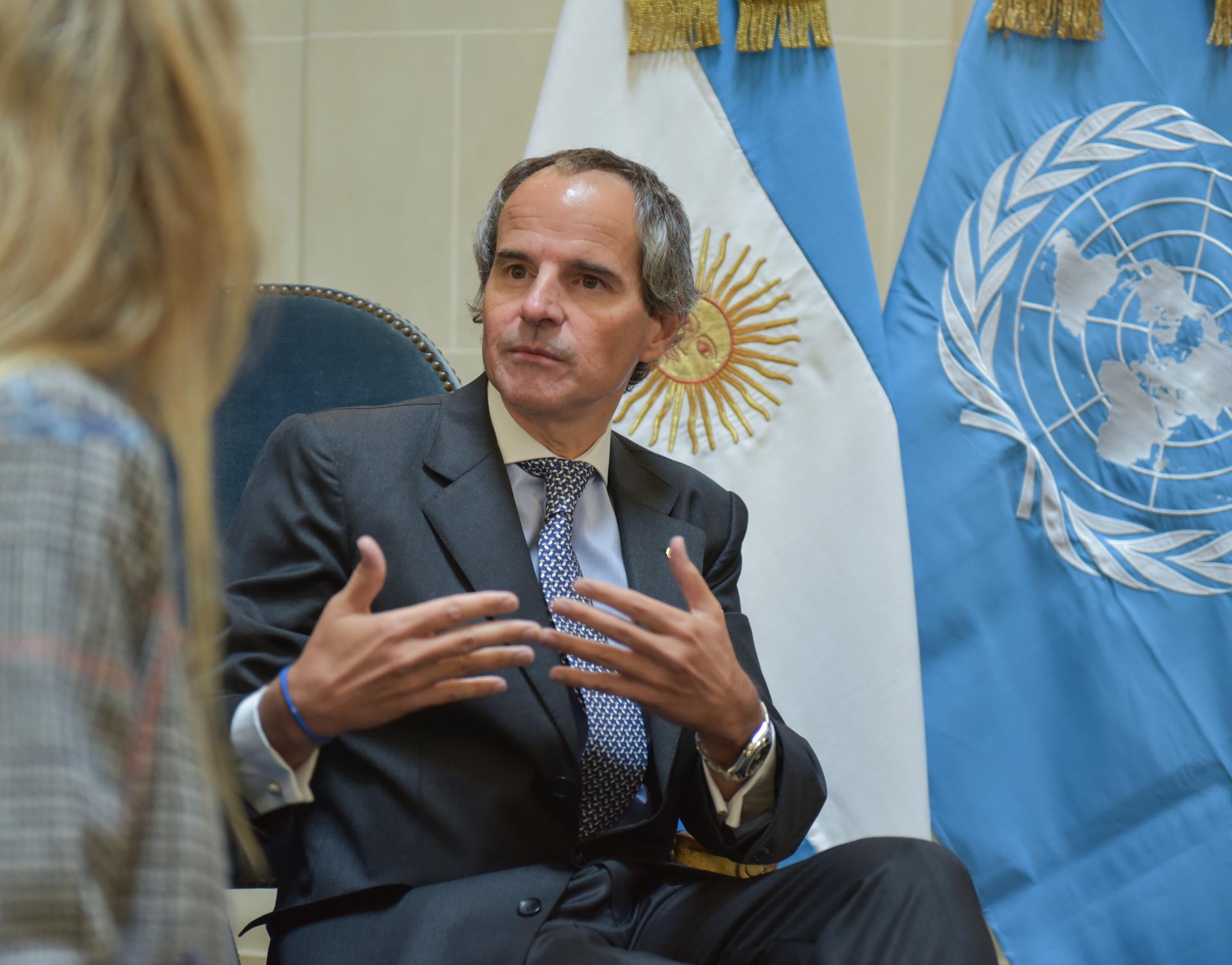The International Atomic Energy Agency is a key player among international institutions.
Uniquely mandated to promote the benefits of the peaceful uses of nuclear energy and ensure that no proliferation of nuclear weapons occurs while fostering the widest possible levels of technical cooperation among its Member States, the IAEA enjoys wide world respect and support.
The Agency evolves in a rapidly changing international scene marked by new needs and challenges. Its central role in preventing the spread of nuclear weapons, growing clean energy demands, legitimate expectations of a better life in developing countries, the need to maintain the highest standards of safety and security in nuclear activities, converge around the Agency as an imperative for its present relevance and future projection.
This requires from the present generation at the IAEA an ability to understand, a disposition to include all those who must be part of the discussion, agile managerial methods and approaches, and a permanent will to communicate.
This mission has to be carried out with empathy and openness.
The world expects a lot from the IAEA, and I am deeply committed to bringing The Agency up to the highest standards, commensurate with its role and responsibilities.
SAFETY AND SECURITY
Part of our primordial responsibility is to contribute to the protection of the general public.
Hand in hand with Member States we work to make available Safety Standards and Security Guidelines which supplement the regulatory landscape of mature nuclear nations and provide peaceful uses of the atom.
The Agency can anticipate trends and needs as it collects the experiences and practice in every country. New designs, innovative nuclear engineering approaches challenge past models and call for the adequate regulations.
Considerable progress in nuclear safety has been made especially after the Fukushima Daiichi accident.
Reactor operations, along with inservice inspections and maintenance, have also improved, but more needs to be done to encourage a pervasive safety culture.
Legislation is largely in place in many countries and regulatory agencies are acquiring the necessary independence and authority, but they still lack resources in many cases.
SAFEGUARDS GARANTIES
Nuclear Verification must continue to be at the heart of the Agency’s role and activity. Its contribution to international peace and security is inextricably linked to the application of safeguards.
Proliferation crisis management lies within the purview of States, but no agreement will hold without the balanced, technical, impartial eyes of the international inspectorate that only the Agency can provide.
The IAEA will continue to assume this role in a firm and fair way on behalf of and for the benefit of the entire membership.
For this, constant dialogue and cooperation with State and regional authorities is a pre requisite.

GENDER EQUALITY
Gender parity will be paramount. While a positive trend has allowed an improvement towards 30% in the proportion of women in the professional and higher categories, further efforts will be needed to reach equality within the Secretariat.
In an organization closely associated with science this acquires extra meaning. Women and girls will have equal opportunity at the IAEA. As an International Gender Champion I need no convincing of this.

TECHNICAL COOPERATION
This is a noble task of the Agency, a true transformative tool for developing countries that must be enlarged and made more effective and efficient.
The TC Programs must be designed following the priorities and the needs of States, it is in their benefit and should be driven by them. But the agency can be the best partner, ready to offer advice on the basis of lessons learned and experience acquired.
Human health, food security, water management, among others, will continue to benefit from nuclear techniques and applications in the coming years.
NUCLEAR ENERGY AND CLIMATE CHANGE
Sustainable Development provides a global reference that includes and involves nuclear energy. Supporting the implementation of SDG 17 from a technology and innovation angle proves the potential and promise of the nuclear contribution.
Hundreds of millions of people in the world do not have access to electricity, and countries with sufficient electricity supply face the dual challenge of a rapidly growing energy demand and concerns for the environment.
Nuclear power is a reliable, low-carbon energy source many countries are now considering or adopting as part of their energy mix. As part of their efforts to meet the United Nations Sustainable Development Goals are ensuring access to affordable, reliable, sustainable and modern energy for all.
The International Energy Agency has confirmed that for CO2 emmissions to be reduced at the pace and within the goals of the Paris Agreement, Nuclear is part of the energy mix in a growing number of countries. A dispassionate, lucid observation of the facts on the ground suffice to confirm this assertion.

THE AGENCY MANAGEMENT
The adoption of “One house approaches” have become commonplace in the institutional narrative of every international organization.
The enunciation is in itself a reflection of a problem more pervasive than it is often admitted.
The Agency has more to do in terms of harmonising itsmultiple activities as integrated parts of a coherent whole.
As Director General I will keep a steady course towards a spirit of collegiality and cooperation among Departments. Member States deserve no less.
Transparency and a fluid and direct dialogue with all will be the norm.
The IAEA can take pride on the quality and dedication of its staff. Through close and traditional links with nuclear institutions of all its. Member States it consistently recruits the best and the brightest nuclear scientists and technologists. This must continue to be part of the human resources pratices at the Agency.
Ambassador Rafael Mariano Grossi

ABOUT THE AUTHOR
Rafael Mariano Grossi is an Argentine career diplomat with over thirty-five years of professional experience in the field of non-proliferation and disarmament.
Ambassador Grossi holds a degree in Political Science, (Catholic University of Argentina) an MA in International Relations and a PhD in History and International Politics both from the University of Geneva, Graduate Institute of International Studies.


